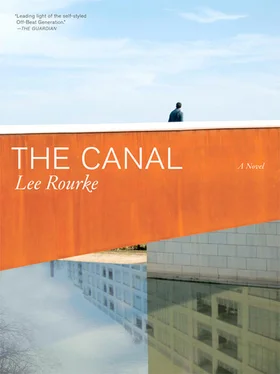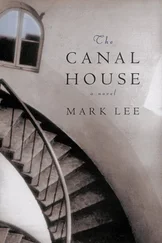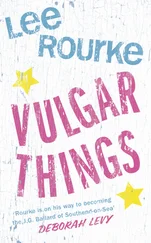“Why you here, we just asked you?”
“Why you here, man?”
“Man, why you here, innit?”
“Yeah man, why you on this bench?”
I jolted upright, my muscles tensing, fear gripping me.
“Because, I’m bored …”
The nanosecond of silence seemed to last aeons before the four teenagers collapsed into laughter.
“Let’s leave this battyboy, man.”
“Yeah, we can go up Mare Street.”
“But he might have money, man.”
“He ain’t got no bean, man.”
I watched them as they walked away, laughing, patting each other on the back, swaggering. They began to pick up stones and throw them into the canal. The red-haired teenager looked back at me and made some sort of hand/finger gesture, the kind I’ve seen used in gangster rap videos — it looked stupid used in this context, near the coots and Canada geese on the canal. I began to wonder if the teenagers were part of the Pack Crew I’d seen spray-painted around the area. Whoever they were, they were certainly intimidating. I watched them as far as I could (which wasn’t that far as the overgrown privets impeded my view), although I didn’t try too hard, as I didn’t want to look like I was staring at them. They may have seen this as a signal, they may have come back, and I didn’t want that to happen.
My right leg soon stopped shaking. I looked at the reflection of the whitewashed office block in the murky water, just a faint trace of it; the sun above had broken free from a heavy-looking cloud. The faint reflection shimmered and morphed into different shapes with the changing patterns of the murky water. I looked back up. The meeting was still in progress and the office worker who was once looking directly at me was now looking at some figures projected onto the far white wall of their section of the office via an overhead projector. The woman who seemed to be conducting the meeting was struggling to use her laptop. The office workers present seemed to be staring up at the projected image regardless of her inability. Pretty soon the projected image on the white wall changed: it became a red and blue graph, the sort used for such a benign purpose. The woman must have cracked a joke about her inability to use the technology provided — this must’ve been the case because I’ve never seen one person laugh at a graph for no reason, let alone about ten people.
It was later than usual when she eventually arrived. I’d lost count of how long I’d been waiting — it must have been a long time, though, because the office workers, as they did each evening, had started to switch off their flat-screen monitors, and the pedestrians and cyclists on the towpath were now moving in the opposite direction as they were that morning.
She was wearing black and white. I had started to notice more about her. She always seemed so clean; flat shoes, tight trousers falling above her ankles. Her skin smooth and tender. She was unlike most people from that area; even the art students and young professionals didn’t look quite like her. She was, or seemed, different. She sat closer to me than usual. She was smoking a cigarette — I hadn’t noticed this about her before. I’m not the biggest fan of people who smoke. She started to speak to me immediately.
“You’re here …?”
“Yes.”
“Were you waiting for me?”
“Yes.”
“What have you been doing?”
“Some teenagers … from the estate … they started harassing me …”
“Oh.”
“Yes, four of them. I thought they were going to mug me …”
“They come here a lot.”
“Who do?”
“Teenagers do … There’s nothing much for them to do … What did they look like?”
“Hoods. One of them had bright red hair.”
“Yes.”
“What?”
“They come here often. I know who you mean. It’s their patch … their territory, it seems …”
“Their territory?”
“They’re a gang. I presume they are. They’re looking out.”
“What for?”
“Other gangs … people to harass.”
“Oh.”
“What did they say to you?”
“They asked me if I was a homosexual …”
“Are you?”
“I didn’t say anything. I think they wanted money. No, I’m not.”
“There’s nothing else for them to do. Money affords them the lifestyle they are told they need. They’re just waiting …”
“Waiting?”
“To become adults.”
“Waiting to become adults?”
“Yes. Adults, it’s obvious … It’s …”
She fell into silence as a woman walking a pet Staffordshire Bull Terrier ambled by the bench. The dog happily sniffing along. I watched the dog; it looked so happy. It actually looked like it had a smile on its face; sniffing around at stuff, litter, rubbish, and scraps of things, running from one bench to another, catching the scent left behind from other dogs — coded messages that were invisible to us humans. The owner looked to be in her mid-twenties. I don’t know, though, she could have been younger. It was hard to tell. She was wearing sports gear — white Reebok trainers, grey jogging bottoms, a navy blue hooded top — as well as gold earrings and bracelets. Her clothes were too tight for her bulging arse and torso; her gut lolloped about. She had dyed blond hair, the roots dark; it was scraped back to such an alarming extent that she looked startled. Her face was heavily made-up. Her large earrings dangled, respondent to each of her aggressive movements.
She was screaming at the dog.
“Come here you little cunt. Come here. Don’t go near those people. Come here you little cunt. Come here. Watch those fucking people. Come here you little cunt. Come here. Don’t go too far. Come here. Come here you little cunt. Don’t go near those two people. Cunt. Come here you little cunt. Come here. Cunt. Come here you little cunt. Don’t go near them. Come here.”
The dog wandered over to me. It was a beautiful dog. Sandy brown. A bitch. She looked up at me and I petted her head and around her thick, muscular neck. She jumped up playfully and tried to lick my face.
“Come here you little cunt. Don’t try to attack the man. Come here you little cunt. Come here. Leave the man alone. You little cunt. Leave the man alone. Come here.”
I looked up.
“Really, it’s no problem … She’s a lovely …”
The dog ran back to her. She kicked the dog in the rib-cage. The dog yelped so loud it caused some coots to scatter across the murky water.
“That’ll teach you to come here you little cunt.”
The woman and the sandy dog walked away. The dog looked up at its owner, tail between its legs. I felt disgusted. I should have done something — at least said something to the owner.
I turned back to her sitting next to me.
“Did you see that?”
“Yes.”
“That’s disgusting. She doesn’t deserve to own that beautiful dog.”
“She comes by here all the time … Always the same, always so aggressive. We can only live in hope that one day the dog will come to its senses and fight back.”
“Is that what you really think?”
“Yes, of course, all the time.”
As she said these words, up above, an Airbus 310 travelling to Heathrow began to wind down. Its engines let out a howl that could be heard for miles around. I looked up: the plane was banking over the city; it was quite low in the sky, well below the thick cloud. It looked colossal, a massive floating machine. I momentarily thought of the twin towers, and where I was that day, but the image soon passed. I followed the plane’s trajectory as it curved around the city, banking to its right, eventually straightening out to follow the route of the Thames westwards to the strip of reinforced concrete it was due to land on. Planes follow these same paths, to greater or lesser degrees, day and night, and no one bats an eye-lid, no one finds it at all remarkable. Often I would point out the moment the plane’s engines could be heard winding down for the final approach to whomever I was with at the time. Most would utter Oh or Yeah but none would enthuse like me, none would see the beauty in this. I would point out the plane as it banked in the sky, but no one seemed interested. Sometimes when I looked up the plane seemed to be stationary, floating, hanging there in the sky, dangling with nothing to do, like a beautiful painting before me. Then I would look around to see if anyone else had noticed this and no one else would be looking up at it, everyone else would be in transit, oblivious, getting on with their business. No one was ever interested. They’d only be interested if the plane was hurtling towards oblivion or something — like that time in New York. Then everyone would stop and look. But it’s still the same plane. It’s still the same plane.
Читать дальше












